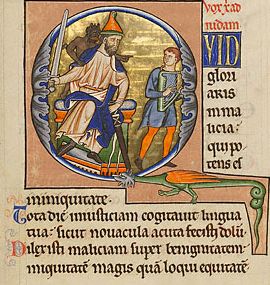Winter 2008 Syllabus: Early Modern French History, 1500-1715
Seminars: Thursdays, 1-4pm, Sem II E2109
Faculty: Dr. Stacey Davis; davisst @ evergreen.edu; x6761; Sem II C3104
This quarter we will explore the reactions of common French men and women to the political, religious, intellectual and cultural turbulence of the 16th and 17th centuries. What were the links between popular violence, riots, witch hunts, exorcisms, the rise of print culture, and the Reformation, the Wars of Religion, and the intellectual and cultural renaissance? How did notions of political power, social order and social control change in the face of royal absolutism, humanism, and growing urbanization?
Seminar will be worth 3 credits this quarter. Besides weekly participation, students will write one 4-5 page synthesis paper incorporating ideas from both program lectures and seminar readings. The exact topic for this paper will be distributed week 3. Papers are due at 1pm on Thursday of week 5, February 7, 2008. No late papers will be accepted. Failure to complete the paper will result in the loss of all 3 seminar credits.
Reading Schedule:
Week 1 (January 10): Marguerite Yourcenar, The Abyss
Week 2 (January 17): Natalie Zemon Davis, The Return of Martin Guerre; Photocopied handout from Natalie Zemon Davis, Society and Culture in Early Modern France: "City Women and Religious Change," pp 65-97.
Week 3 (January 24): Michael Wolfe, ed., Changing Identities in Early Modern France, pp 191-248; Photocopied primary source handout on witches; Photocopied handouts from Natalie Zemon Davis, Society and Culture in Early Modern France: "The Rites of Violence," pp 152-187, and "Printing and the People," pp. 189-226.
Week 4 (January 31): Michael Wolfe, ed., Changing Identities in Early Modern France, pp. 46-77; 95-123;147-168; 295-324; 345-390; Photocopied handout from Natalie Zemon Davis, Society and Culture in Early Modern France: "Strikes and Salvation in Lyon," pp. 1-16.
Week 5 (February 7): Lisa Silverman, Tortured Subjects: Pain, Truth and the Body in Early Modern France; History seminar essay due today.
